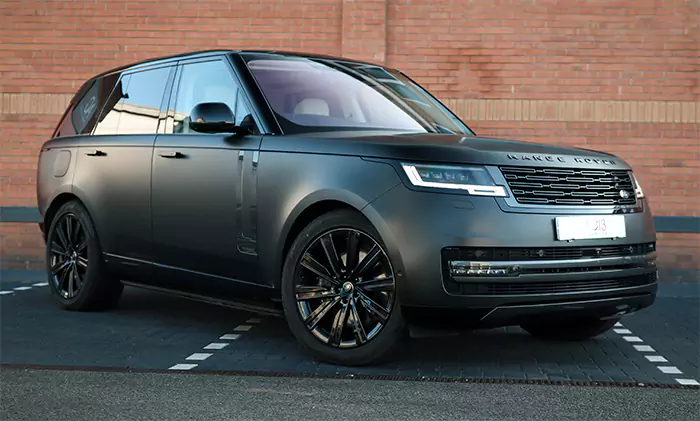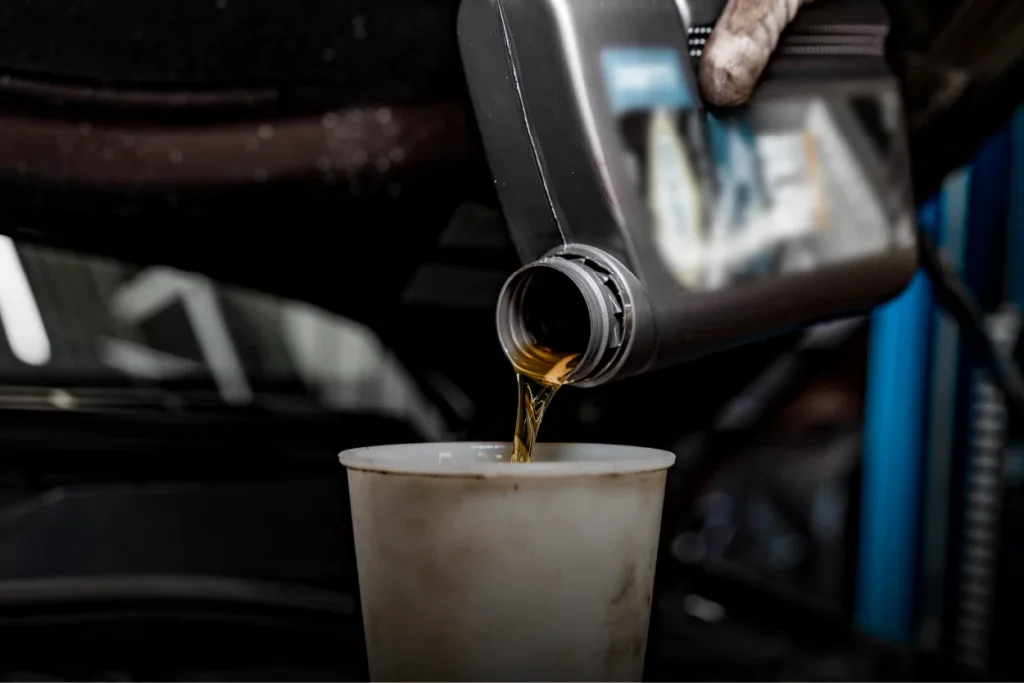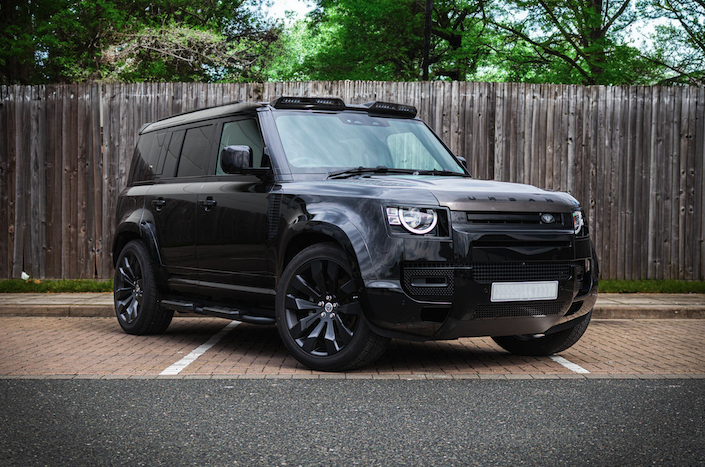If you’re contemplating buying a Range Rover but find yourself uncertain about the best engine for your lifestyle, you’re not alone. There are various factors to consider, including your performance expectations, weekly mileage, access to charging ports and driving experience.
In this blog post, we’ll delve into the different engine options available and help guide you toward the perfect Range Rover choice.
Once you’ve determined whether Petrol, Diesel, or Hybrid suits your preferences, you can narrow down your the specific model that aligns with your budget and requirements.

Range Rover Petrol Engines
The Range Rover petrol lineup is a simple one in lieu of high-performance SV versions that may follow in years to come. These vehicles cater to “petrol heads” or those who view their cars as more than mere transportation. They deliver an engaging driving experience without compromising on the technological and comfort features synonymous with the Range Rover brand. If you’re seeking an exhilarating exhaust note, read on.
At the base of the petrol range is the P400, boasting a 3.0-liter six-cylinder engine with mild hybrid technology, enhancing efficiency and fuel economy. It produces 400hp and achieves approximately 25mpg in real-world driving conditions.
Sitting atop the petrol offerings is the P530, a robust powerhouse that effortlessly delivers outstanding performance. As the name suggests, this V8 engine, sourced from BMW, generates 530hp. Confident overtaking and relaxed highway cruising is taken in the vehicles stride. Being a twin-turbo unit, it also possesses the potential for relatively respectable fuel consumption while sprinting from 0-62mph in just 4.4 seconds. Its refined V8 growl and impressive combination of torque and power contribute to a Range Rover that feels surprisingly nimble.
All petrol models are equipped with four-wheel drive and an eight-speed gearbox, complete with a low-range transfer box for off-road prowess. You’ll also enjoy Land Rover’s signature systems, including dynamic air suspension, Terrain Response 2, and a remarkable 900mm wading depth, underscoring the vehicle’s inherent versatility. Although it’s likely a lot of owners won’t engage with the off-road capabilities of these vehicles.
Range Rover Diesel Engines
For Range Rover drivers who prioritise diesel power, there are two appealing options: the D300 and D350, both featuring Land Rover’s 3.0-litre straight-six diesel engine. These power units essentially share the same engine but come in two states of tune – the D300 producing 300hp and the beefier D350 churning out 350hp. Here at Midlands LR, we offer a power upgrade service that can elevate your Range Rover from D300 to D350, using factory-approved software and limitations.
The diesel engine operates with remarkable silence at all times, emitting minimal noise even at idle. It delivers robust low-end torque and impressive acceleration without a need for high-revving or activating Dynamic mode to awaken the automatic transmission. This makes the diesel Range Rover an optimal choice for long-distance travel and tasks involving heavy work or towing.
The D350 aligns perfectly with the Range Rover’s character, boasting nearly equivalent real-world performance to its petrol counterparts while maintaining a sophisticated diesel demeanour. Moreover, its affordability both in terms of purchase and running costs enhances its appeal, making it a top choice for many.
Range Rover Hybrid Engines
Land Rover promotes its plug-in hybrids as “electric hybrids,” emphasising their substantial all-electric range, potentially up to 70 miles – almost more electric car than petrol. In practical use, the real-world electric range is likely closer to 50 miles, still a noteworthy achievement, thanks to the Range Rover’s substantial 38.2kWh battery.
You have two hybrid engine options to consider – the P440e and the range-topping P510e. Regardless of your choice, both deliver formidable performance, with the P440e accelerating from 0-62mph in just 6.0 seconds and the P510e achieving it in a brisk 5.5 seconds. These remarkable figures are even more impressive considering the vehicles’ substantial weight, approaching three tons.
What truly sets these hybrids apart is their seamless transition between power sources. The inline-six petrol engine operates so quietly that you may need to check the rev counter to understand whether you’re running on petrol or electric power. It even exhibits an appealing engine note when revved, a characteristic lacking in the previous-generation model with its less impressive four-cylinder engine.
Handling Excellence
All of the engine models are planted within the same chassis and platform, the only varying factor being the weight of the additional batteries in the electric-enhanced vehicles. The Range Rover offers effortless handling, even at high speeds. Seating you high above the road, it provides unparalleled visibility. In our opinion, the Range Rover offers a luxurious and capable driving experience that remains unmatched by any other car manufacturer in this segment.
The Final Verdict
So given what we’ve discussed, what is right for you? Well, that really depends on your usage for the vehicle. For example, if your Range Rover is being used to tow then higher torque figures and fuel economy the diesel options lend themselves nicely.
If you’re looking to do lots of short journeys such as ferrying the kids around then you could make use of the hybrid technology, giving you a much smaller fuel bill across the year.
However, if you’re like us and want a raucous V8 engine and exhaust note and performance to match you may look at the twin-turbo P530 lump. Just remember it’s smiles per gallon with this one! Watch this video if you need any convincing.
If you have found your perfect Range Rover but it’s missing some of the spec options you would have desired, be sure to check out our Activations & Retrofits. We just might be able to fix that for you!

